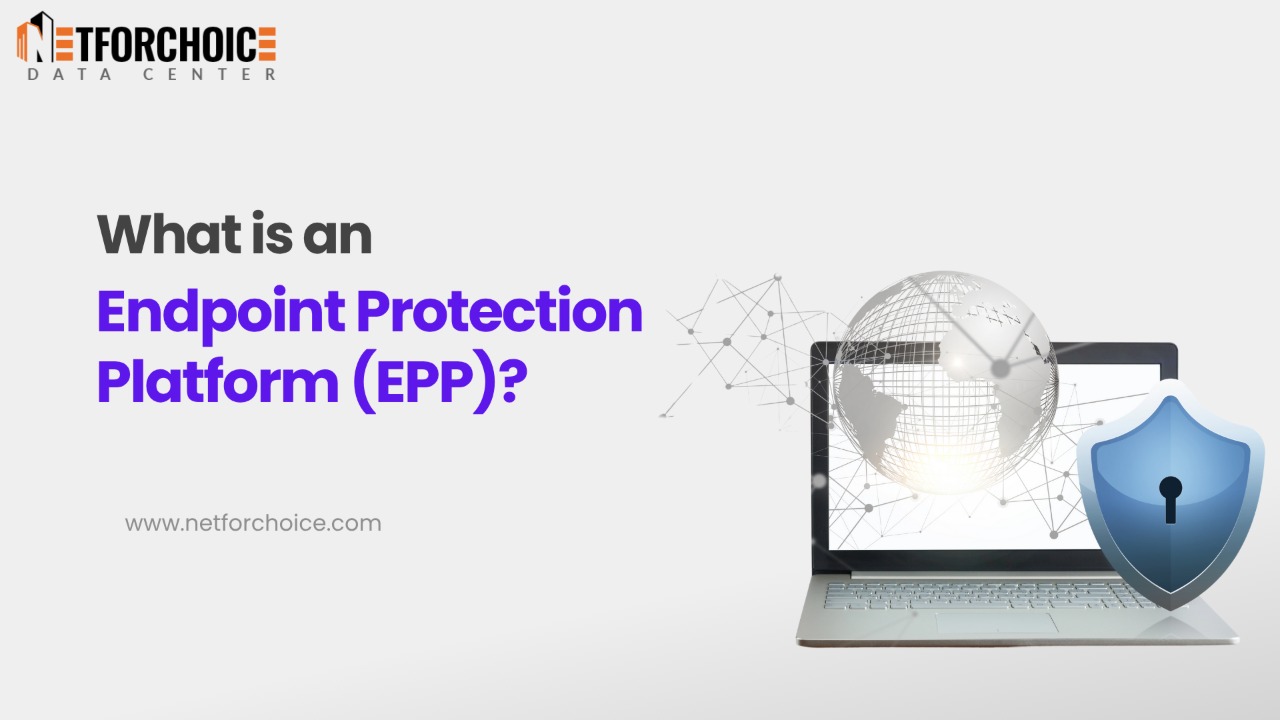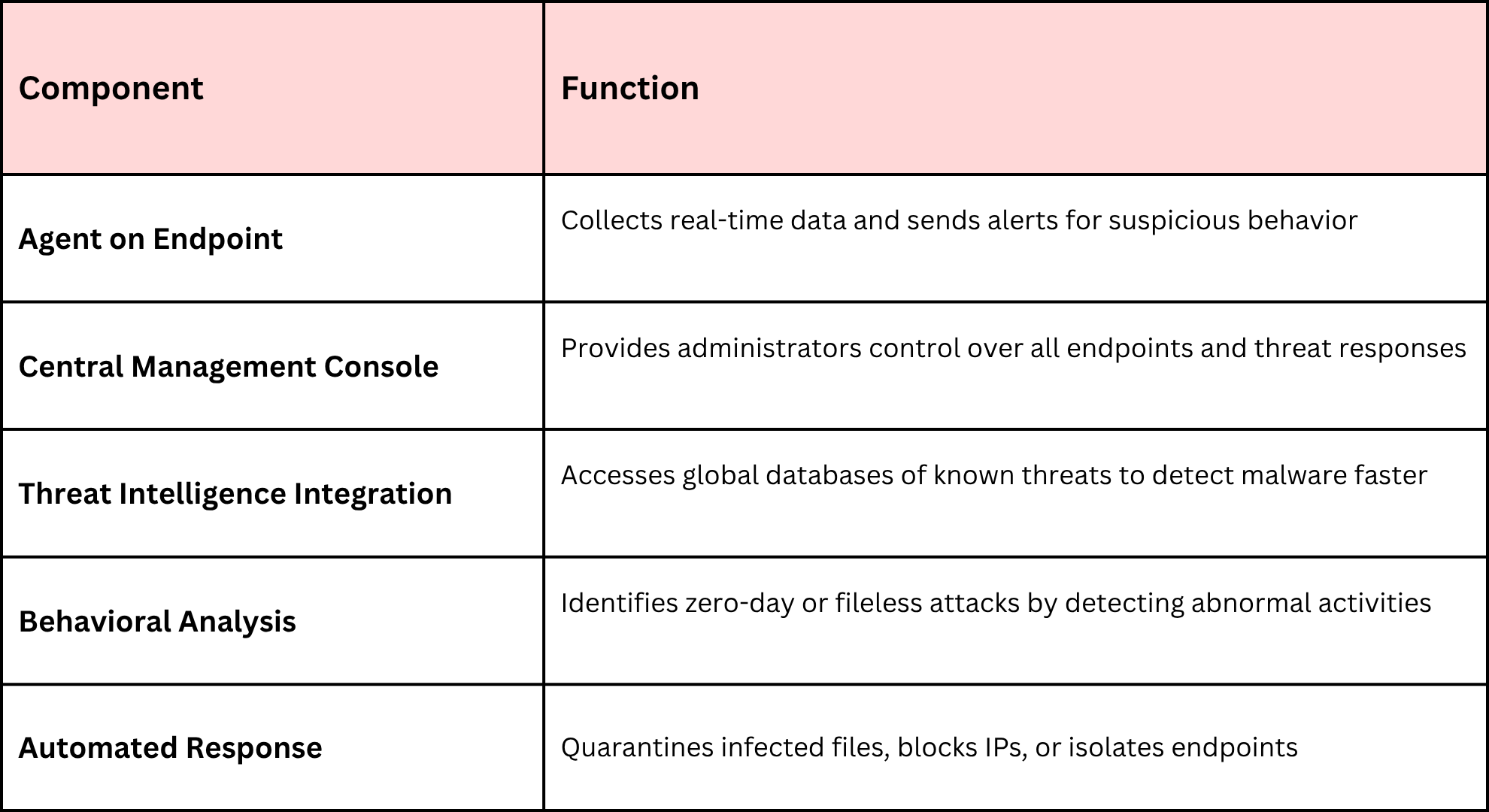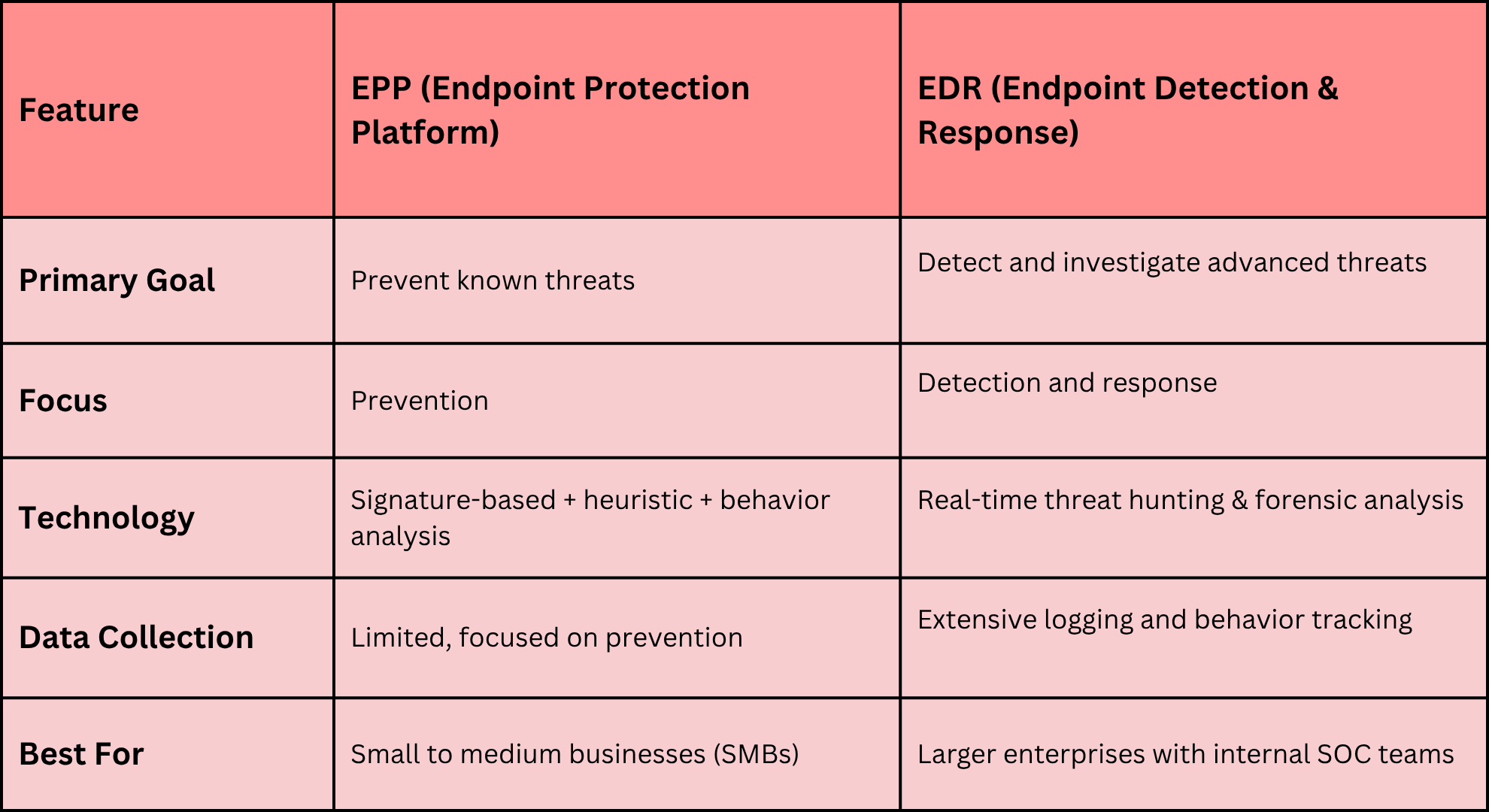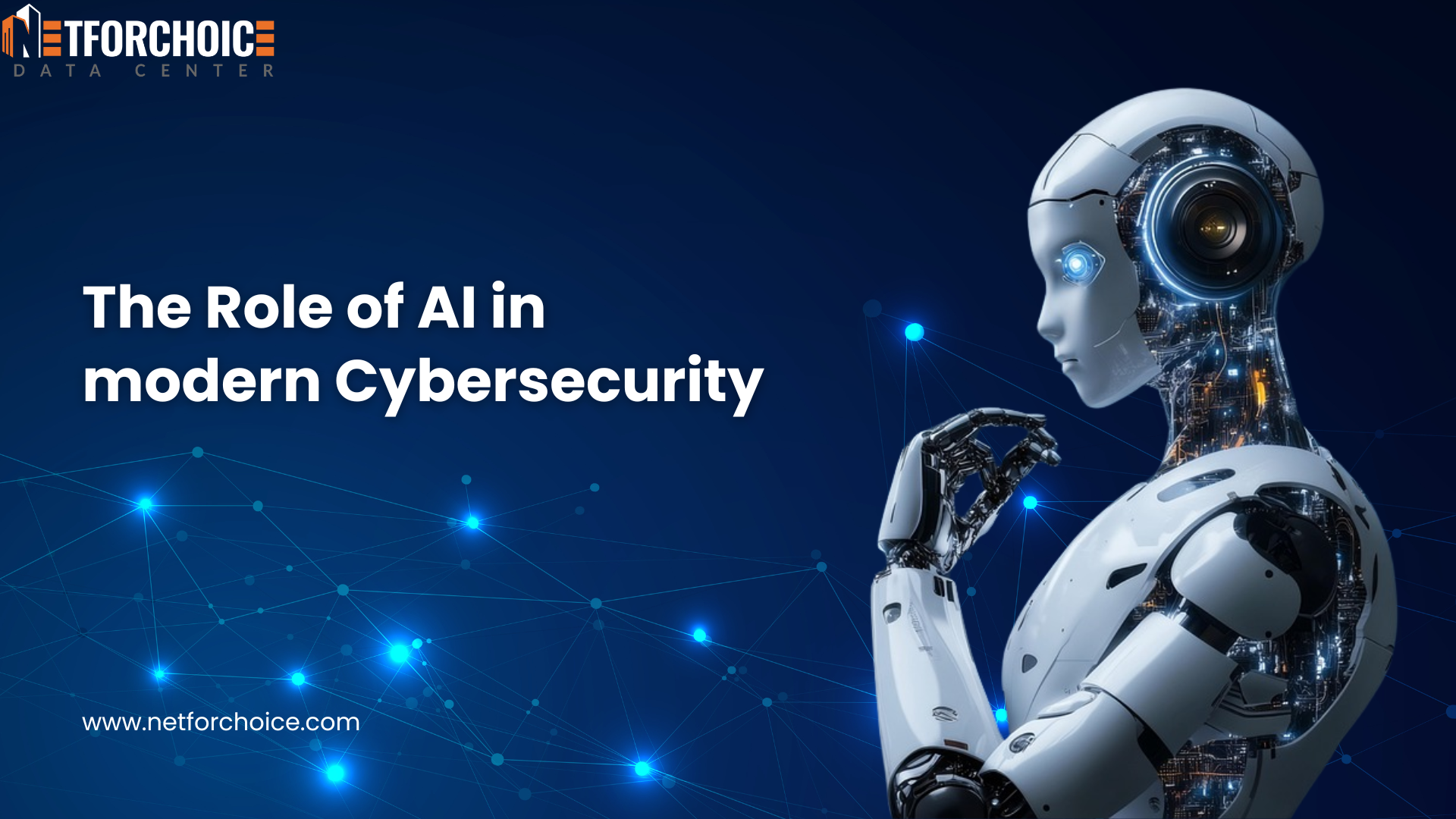What is an Endpoint Protection Platform (EPP)?

Every gadget in today’s digitally connected world, whether it be a laptop, desktop, tablet, or smartphone, could be a point of entry for cybercriminals. The attack surface has significantly increased as a result of companies moving toward remote and hybrid work arrangements. An Endpoint Protection Platform (EPP) becomes crucial in this situation.
EPP is an all-in-one security solution that can identify, stop, and handle attacks that target endpoint devices. It is more than just antivirus software. A modern EPP solution protects your company against changing cyberthreats, such as ransomware, malware, phishing, and data breaches.
What is an Endpoint Protection Platform?
A broad security solution called an Endpoint Protection Platform (EPP) protects servers, PCs, and mobile devices against online attacks. compared to conventional antivirus software, EPP employs machine learning, threat intelligence, behavioral analysis, and real-time monitoring to stop threats before they have a chance to do any damage.
EPP solutions are essential to an organization’s overall cybersecurity strategy and can be implemented on-premises, in the cloud, or in a hybrid model.
How Does Endpoint Security Work?
Installing a small software agent on every endpoint device is the way endpoint security operates. This agent continuously tracks activity and sends reports to a central control dashboard. This is how it usually works:

Preventing risks before they affect sensitive data or impact operations is the aim.
Benefits of Endpoint Security
Numerous benefits come with using an endpoint protection platform. Let’s examine the main advantages of endpoint security:
- Comprehensive Threat Defense
EPP solutions build a multi-layered security system by combining intrusion detection/prevention, firewall, antivirus, and anti-malware software.
- Alerts and Real-Time Monitoring
When unusual activity is noticed, it instantly notifies users, enabling prompt action to be taken before the damage gets worse.
- Management in One Place
Security teams may save time and minimize errors by monitoring, configuring, and updating all endpoint devices from a single dashboard.
- Preventing Data Loss
With features like encryption and device management, EPP makes sure private company information doesn’t get lost or transferred incorrectly.
- Reporting and Compliance
Integrated reporting tools and audit records make regulatory compliance simpler.
Why Endpoint Security Is Important
Businesses should not compromise on endpoint security for the following strong reasons:
- Risks of Remote Work: Unsecured networks are frequently used by remote workers. EPP makes sure these gadgets stay safe.
- Phishing & Ransomware: In 2025, ransomware and phishing will be the biggest risks. EPP solutions instantly identify and stop ransomware payloads and phishing attempts.
- Data protection: Endpoint devices’ sensitive data is at risk. EPP helps in encrypting and protecting such data from security attacks.
- Cost of Cyberattacks: It is frequently significantly more expensive to recover from an attack than to stop one. EPP considerably reduces this risk.
The Distinction Between EPP and EDR

Selecting the Correct EPP for Your Company
Take into account the following factors when choosing an endpoint protection platform:
On-premises vs. cloud-based: Cloud EPP is better for remote work and more scalable.
Threat Detection: Select platforms that use AI/ML-based behavior analysis to detect threats.
Integration: Verify that it works with the firewalls, compliance tools, and SIEM you currently have.
Management Ease: It is essential to have a central dashboard with role-based access controls.
Vendor Reputation: Choose vendors who have a reputation for providing regular updates and threat intelligence for your business.
Conclusion
By 2025, cybersecurity risks are not only changing but also becoming more serious. Every endpoint needs to be secured as part of a company’s overall cybersecurity plan. Purchasing a powerful endpoint protection platform guarantees that your people, data, and devices are safe from modern threats.
Take charge of your company’s security posture now by putting in place a strong EPP before a breach occurs.
Frequently Asked Questions (FAQs)
- What is an Endpoint in Endpoint Protection?
Any device that connects to your network, such as a server, laptop, desktop, or mobile phone, is called an endpoint. These machines are protected from viruses, illegal access, and data theft via endpoint protection.
- Are antivirus and EPP the same thing?
No. Antivirus software is only one part of an EPP. An endpoint protection platform offers complete device-level security by combining intrusion prevention, firewall, anti-spam, and antivirus software.
- What distinguishes EPP from a firewall?
While EPP shields the real devices (endpoints) from internal threats, malware files, and programs, a firewall manages network traffic.
- Can ransomware be stopped by EPP?
Yes, in order to identify and stop ransomware before it can encrypt files, modern EPP solutions employ behavioral analysis and real-time monitoring.
- Do small businesses need endpoint security?
Of course. Due to their weakened security, SMBs are frequently the target of cybercriminals. Endpoint protection guarantees the security of your company’s operations and data.


